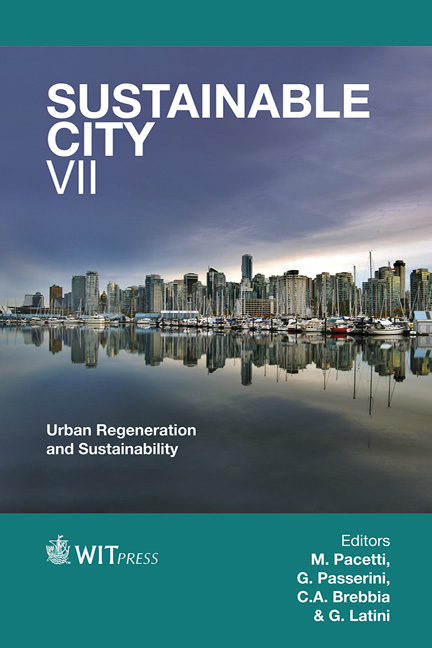Urban Complexity, Scale Hierarchy, Energy Efficiency And Economic Value Creation
Price
Free (open access)
Transaction
Volume
155
Pages
11
Page Range
97 - 107
Published
2012
Size
845 kb
Paper DOI
10.2495/SC120091
Copyright
WIT Press
Author(s)
S. Salat & L. Bourdic
Abstract
Several authors, such as Batty or Frankhauser have already analysed cities as fractal structures. Putting in perspective historical cities with modernist cities, others such as Alexander or Salingaros have stressed the loss of urban complexity over time. This paper aims at going a step further and investigates energy and economic aspects of cities through the prism of complexity theory. Fostering a more systematic use of fractal approaches, the authors highlight the crucial role that urban complexity plays in urban sustainability: only scale hierarchic urban structures will succeed in optimising the use of scarce resources allocated, improving at the same time energy efficiency and economic value creation. Keywords: power laws, fractals, urban efficiency, sustainable cities. 1 Introduction Contrary to Vienna, Barcelona or Kyoto, Paris and Tokyo have grown without a proper master plan. The plans of Paris and Tokyo though are never incoherent: on every scale, patterns prove to be strikingly stable, as for example the size and structure of the urban grid. In both cases, the layout is immediately picked up by a remarkably dense geometry. In addition, in both cases, the city has adapted differently to its culture and its time. Faced with these cities without plan but which metric and topologic structures are extremely stable, two questions might be explored. The first one boils down to asking whether inventing the city, instead of investing in isolated projects, is not about defining rules of assemblage and coexistence of elements. Modernism has impoverished this complexity and often reduced the city to isolated objects. The second question that is the key issue of this paper is about understanding urban complexity and defining the
Keywords
power laws, fractals, urban efficiency, sustainable cities.





